Papers

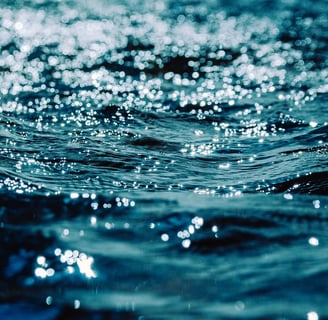
A historical overview of the main methods of safeguarding water resources
November 25, 2024, Maurizio Angeloni
The climate changes we have witnessed over the last few decades have caused dramatic water crises with disastrous consequences, especially in the countries of the global South, and which are increasingly affecting the more developed countries as well. While, however, the countries with more prosperous economies manage, albeit with difficulty and with massive increases in public spending, to cope with these crises in order to somehow preserve the environment, agriculture, industry, energy production, and anything else closely related to water, in the poorer regions of the world stemming the consequences of water scarcity is a titanic undertaking. In such areas, in fact, the lack of water puts at risk not only the already fragile economies, but the very lives of entire populations, giving rise to dramatic humanitarian crises, threatening the peace and stability of nations and entire geographical areas, and opening the way to mass migrations with serious social and economic problems for the countries of destination. (...)
The Fragility of Water Sharing Relations Between India and Pakistan
June 22, 2024, Isabella De Baptistis
The hydro-strategic rivalries involving India and Pakistan are not easily understood without retracing one of the most salient moments of their common history and without also taking into consideration the current international context and the aspirations/priorities of both nations. In 1947, the division of the colony of British India into two separate and independent states, India and Pakistan , was sanctioned . Until that time, during the British domination, the Hindu, Sikh and Muslim communities had coexisted in the Indian subcontinent for hundreds of years, with contained tensions. The creation of the dual state, on religious and confessional grounds, granted Indian Muslims (30% of the population) their own independent nation, in such a way as to avoid possible oppression by the Hindu majority. The birth of the two state entities was characterized by enormous tensions and terrible violence, which caused the mass migration of 12-15 million people (...).


Air humidity as a strategic source for water production
September 5, 2023, Roberto Natali
That water is a precious universal resource is an incontrovertible fact. What is not yet universal is the perception of this value, which varies inversely to the scarcity of the so-called "blue gold". The AB AQUA Hydrostrategic Studies Centre insists on this essential concept, with the aim of spreading awareness that in a growing number of areas of the world the unavailability of water in sufficient quantity and quality for the life and development of the people who live there is taking on an objectively dramatic dimension. The issue is certainly being addressed by the International Community which, through meetings, analyses, conferences and agreements, is working to identify possible solutions, in the context of a more general commitment to environmental conservation. It is however important that in the face of the great phenomena of environmental degradation that characterise current events, from the melting of glaciers to the incessant advance of desert areas, from the difficulty of (...)


Hydro-strategy: A new approach to solving water crises
March 6, 2023, Filippo Verre
A water crisis is perhaps the most traumatic event that a community of individuals living in a given territory can face. This is because water - or rather the lack of water - has a devastating impact not only on the personal sphere, but above all on almost all productive sectors related to the community which, despite itself, finds itself struggling with water supply difficulties. In fact, in addition to being indispensable for our daily activities - namely cooking, drinking and washing - the so-called "blue gold" is present at various levels in many production processes that are often not associated with the use of water resources. In this regard, consider for example the production of nuclear energy. There are reactors called "light water" ( Light Water Reactors ) that are moderated and cooled with the aid of water. Initially designed for use in naval propulsion due to their small size and the absence of problems with the movement of the fluid in the pressure vessel during navigation, these reactors use a large number of H2O molecules in the cooling phase (...).



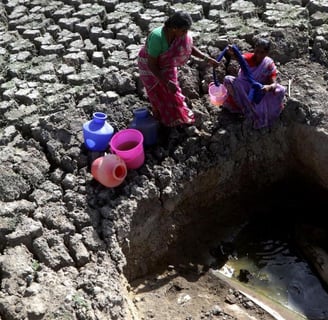
Chennai Water Crisis (2019). An Indian National Emergency
September 7, 2022, Filippo Verre
In 2019, the Indian metropolis of Chennai – called Madras until 1996 when it adopted its current name – was the scene of a very serious water crisis that led local authorities to declare, on June 19, the much-feared “ Day Zero ”. For the first time in recent human history, a vast urban agglomeration of several million people had run out of water. No more water came out of the taps, manufacturing and industrial activities – of which Chennai is extremely rich – had no access to fresh water , the most basic of resources, too often taken for granted . Fortunately, following heavy rains between July and September of the same year, the Indian city avoided further drought-related problems. The rainfall resolved a very dangerous situation that was slowly sliding towards a socioeconomic crisis of massive proportions not only for the urban area of Chennai but for all of India. The metropolis, in fact, in addition to representing the sixth demographic entity of the Indian subcontinent, is a strategic hub from an industrial, technological and (...)
The “Water War” Between Russia and Ukraine: The Case of the North Crimean Canal
August 8, 2022, Filippo Verre
Over the past few months, numerous dossiers, reports and in-depth analyses of various kinds have been produced – both in Italy and around the world – with the specific aim of understanding the reasons that pushed Moscow to invade Ukraine. Strategic factors of various kinds, ideological, political and economic motivations have been taken into consideration, in addition to recalling in detail the peculiar relationship between Ukraine and Russia, which has been very close for centuries. Surprisingly, little or nothing has been written on a decidedly primary issue that has contributed greatly to worsening a relationship – that between Kiev and Moscow – that has already been very precarious since 2014: the water factor . Well yes, water, or rather the control of water, has played a decisive role in the relations between the two contenders. In fact, especially with regard to the southern front, Russia has attacked the territory under Ukrainian control precisely to guarantee Crimea, a peninsula de facto under Moscow's control since February 2014 (...)

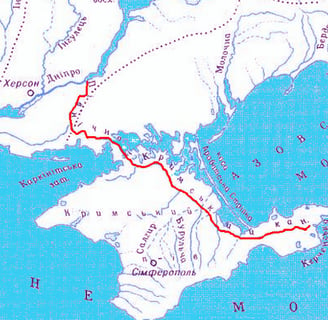
GERD: “The Great Dam of Ethiopian Renaissance”
June 10, 2022, Roberto Natali
Since elementary school, studying the ancient Egypt of the pharaonic dynasties, we have learned of the vital importance of the floods of the Nile River, of the layer of fertile silt left behind when the waters receded, of the consequent and strong increase in agricultural production achieved in the vast areas of land adjacent to its banks. Agricultural products and pastures for livestock have been a source of wealth for those populations for millennia, thanks to the periodic gift of the most important African river. And even today, most of the country's population (about 90%) lives concentrated along the fertile areas of the sacred river (including the great delta) and even the industrial districts of the country have been able to develop thanks to the precious water resource provided by the Nile. However, due to its extension of over 6,852 km , this majestic river is not only the longest in the world, but also represents an indispensable trans-border waterway , since it crosses various African nations. So, not only for Egypt, but also for Sudan, South Sudan and Ethiopia it constitutes (...)

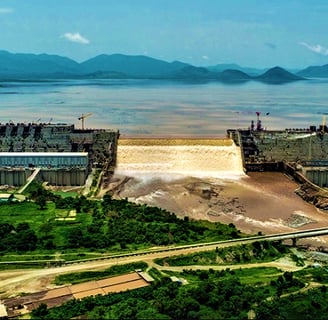
The “numerous” crises linked to the environmental disaster of Lake Chad
March 27, 2022, Filippo Verre
Environmental crises are one of the main reasons why human beings decide to emigrate. Wars, famines, lack of economic prospects and development are not the only, albeit very valid, reasons that push millions of individuals to leave everything behind to seek a better future. In this peculiar historical moment, environmental crises , especially if linked to difficulties in water supply , represent a factor that must necessarily be taken into consideration to correctly study migratory dynamics. The difficult and, in some ways, very worrying situation of Lake Chad fits perfectly into this perspective. Currently, this large water basin is going through a very serious crisis that significantly impacts the life, society and economy of approximately 30/35 million people living near the lake. This issue, moreover, concerns us very closely, given that a high number of migrants from Africa headed to Italy come from northern Nigeria, an area directly affected by the environmental crisis underway in Lake Chad (...).

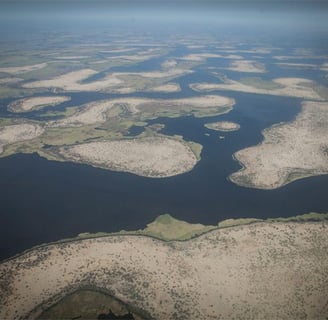
The Grand Inga Dam Project: Feasibility and Controversies
January 30, 2022, Filippo Verre
In the African continent, and in particular in sub-Saharan Africa, despite an abundant supply of raw materials, there are still many problems related to the production of electricity. The latter, above all, is often lacking in many developing countries, which are still unable to provide their citizens with a service that nowadays appears increasingly fundamental. This situation is inevitably destined to change in the near future, since many African nations have invested heavily in the construction of infrastructures and plants capable of generating electricity for both domestic and industrial use. One of the most used methods is the exploitation of rivers to produce hydroelectric energy. There are numerous cases that can be cited in this respect. Above all, think of the large dam that the Ethiopian government has been building since 2011 on the Blue Nile. The Grand Ethiopian Renaissance Dam (GERD), with an estimated cost of (...)

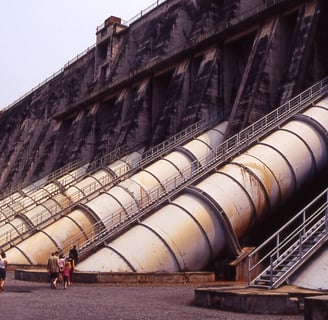

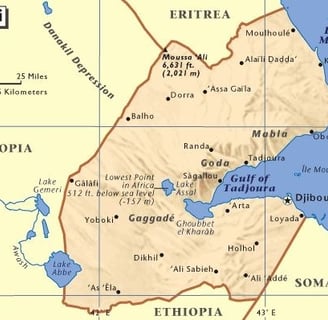
Turkish Hydro-Diplomacy in the Horn of Africa. The Case of Djibouti
January 16, 2022, Filippo Verre
Over the last decade, Turkey has significantly increased its presence in many areas outside its borders. Ankara's activism in foreign policy has been, and still is, significant to say the least; by virtue of this, some experts and analysts often define the strategy undertaken by Turkey aimed at increasing its geopolitical role outside its national borders as neo-Ottoman . The Horn of Africa is one of the main scenarios in which Turkish diplomacy operates most actively. It is one of the most strategic areas not only for the African continent but above all in a global perspective. The presence of the Suez Canal makes the Red Sea, and consequently also the countries that overlook it, extremely relevant in a geo-strategic key. It is no coincidence that Djibouti, one of the smallest African states in terms of territory and demographics, is considered of extreme value by the main global players. Despite having a moderate extension (about 23,000 square kilometers) and a population that is to say the least modest (according to the latest data, Djibouti (...)
Water Colonization: The Case of Cyprus
December 19, 2021, Filippo Verre
Water scarcity is undoubtedly one of the major problems affecting Cyprus. As is known, the political and administrative situation of the island is not particularly simple, since since 1974 Cyprus has been divided into two separate entities. The southern part, with a Greek majority, with Nicosia as its capital and a member of the European Union, is opposed to the northern part, with a Turkish majority and not recognized by the International Community [1] . However, despite this complex institutional framework, it is precisely the chronic lack of water resources that negatively characterizes the life of the Cypriots. The dry climate, the weak rainfall and the lack of adequate hydrographic basins make this corner of the eastern Mediterranean a difficult territory. Furthermore, in the last fifty years the situation has significantly worsened, due to the spread of mass tourism throughout the island. The construction of mega resorts, beach resorts and accommodation facilities, with the consequent (...)

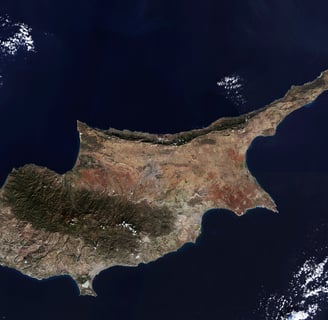
Navigation in the Amazon River Basin
December 5, 2021, Roberto Natali
Have you ever sailed on the Amazon River? Have you ever felt that sensation of immensity, strength, life, light, between infinite green, sounds of the forest and colorful parrots darting in the sky? The great South American river is life for the cities and populations that live along its course; it is a fascinating water reality but, above all, the Amazon River is strategic for the economies of the countries that border it. 6,180 km long - second in length only to the Nile with its 6,671 km - it crosses the vast Amazon rainforest (about 5.5 million km²) with a flow rate of 160,000 m3/sec., to then flow into the Atlantic Ocean. In particular, the great importance of the Amazon River comes from the size and richness of its drainage basin, which covers an area of approximately 6,300,000 km², equivalent to 35.5% of the South American continent. It includes various regions (in addition to the vast Amazonian lowlands, part of the Pre-Andes, the South American plateau, part of the Guayana massif) and politically involves Brazil, Colombia, Ecuador, Bolivia, Peru, (...)

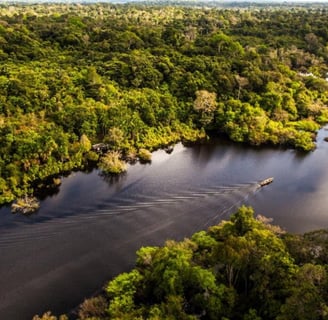

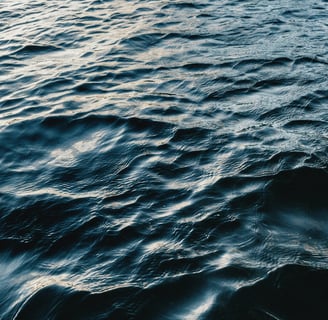
Desalination: Ecological Doubts and Future Prospects
November 21, 2021, Filippo Verre
Desalination, or the removal of the salt fraction from water containing salt, is a scientific process that has aroused the curiosity of human beings for a very long time. It is not known exactly when the first scholars actually began to dedicate themselves to it; the fact is that one of the first to study the subject in question was Leonardo da Vinci, who as early as the Renaissance realized that a certain amount of distilled water could be produced cheaply using a still and a stove. Other documented testimonies report that during a siege in Tunisia in 1560, seven hundred Spanish soldiers resisted for months against a large Ottoman army thanks to an intuition of the captain. The latter built a still capable of producing 40 barrels of fresh water per day by desalination large quantities of sea water. During the following centuries, interest in desalination became increasingly strong, but it was only from the 1960s that desalination plants began to be produced on an industrial level. The first large desalination plant was inaugurated in


Cape Town Water Crisis (2018): A Lesson We Should Never Forget
November 12, 2021, Filippo Verre
During the first half of 2018, Cape Town experienced enormous water supply problems. The economic capital and third largest city in South Africa risked experiencing a nightmare situation between February and April 2018: a total lack of water for both production activities and the population's primary needs. In those months, the situation was truly desperate; " Day Zero ", the date on which the water was expected to run out, had been set for April 22. Disturbances of all kinds with dramatic scenarios characterized the large South African metropolis for several weeks. Fortunately, after a peak of generalized despair that occurred during the last days of March, the serious water crisis subsided and the worst was averted. A series of spring rainfalls that hit Cape Town made it possible to overcome a truly tragic scenario. However, despite the happy ending, what characterized the economic capital of South Africa in those months deserves to be studied carefully to understand what did not (...)
Straits and Maritime Channels: A Reflection
November 7, 2021, Roberto Natali
As many will remember, in December 1989 the United States invaded Panama, with the declared and successful aim of deposing General Manuel Noriega, head of the Armed Forces who exercised de facto dictatorial power in the country. It was a military operation, decided by President George HW Bush, called “ Just Cause ” which for a long time blocked commercial traffic in the Panama Canal, the administration of which was returned to the Panamanians after 10 years, on the basis of the Carter-Torrijos agreement of December 1999. Beyond the political effects usually associated with military operations, the blockade of the Panama Canal did not fail to produce very serious damage to the economies of many countries, especially on the Pacific coast of South America, which used the Central American route to export their products, through Panama, or import them from the European and African continents. We must not forget, in fact, that despite the advancement of technology and cargo air carriers (...)

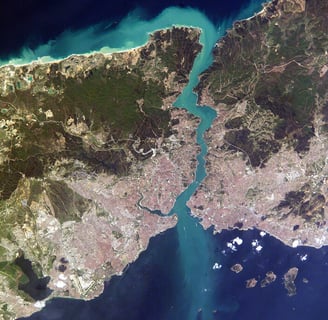

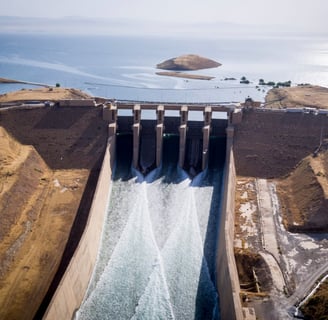
The Mosul Dam
October 31, 2021, Filippo Verre
The control of water resources has always been an essential necessity for human beings. Bridges , ports and canals are in fact among the most strategic infrastructures built over time in various parts of the world and in different historical periods. Following the powerful technological and engineering developments that have occurred in recent decades, it is now possible to build important water structures capable of exercising enormous control over entire ecosystems and regions: we are talking about dams or, to be more precise, "mega-dams". Imposing in height and power, mega-dams are currently the cause of numerous disputes at an international level between sovereign states. Very often the construction, and above all the management, of these infrastructures gives rise to the so-called Transboundary Water Conflicts (TWC), or trans-border water conflicts between countries that, despite themselves, share one or more watercourses. In this regard, it is enough to think of the recurring tensions between Turkey and (...)
Abaqua
Via Cassia, 615
00189 Roma (RM)
© 2024. All rights reserved.
Codice Fiscale: 96584590580


